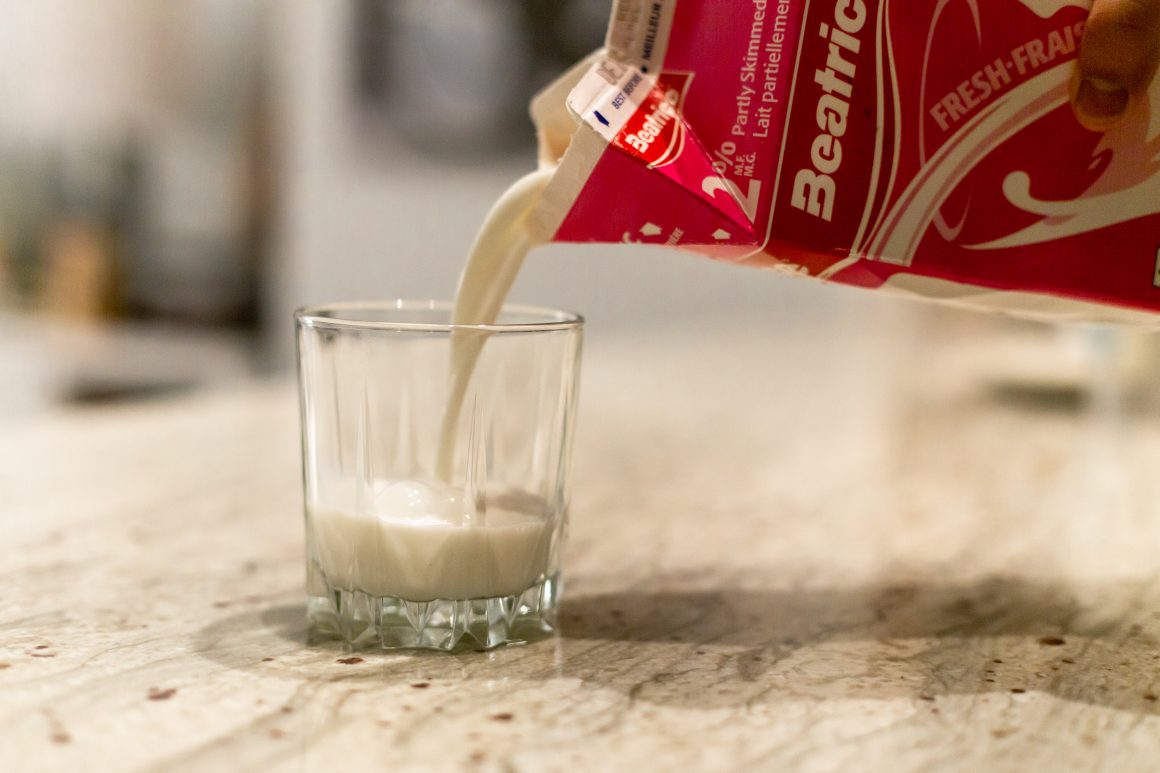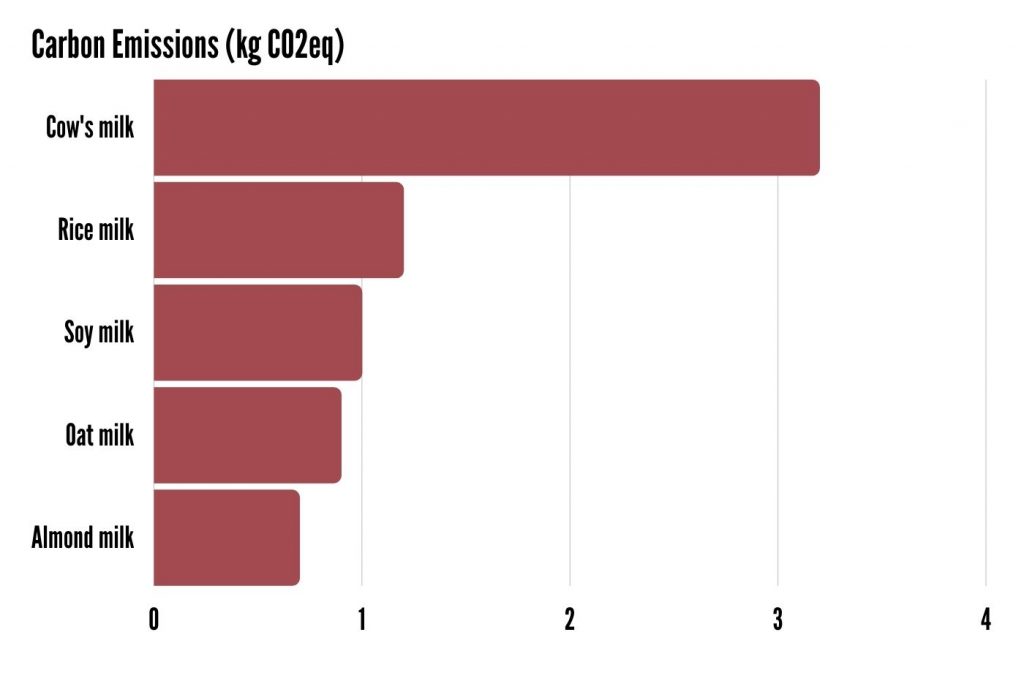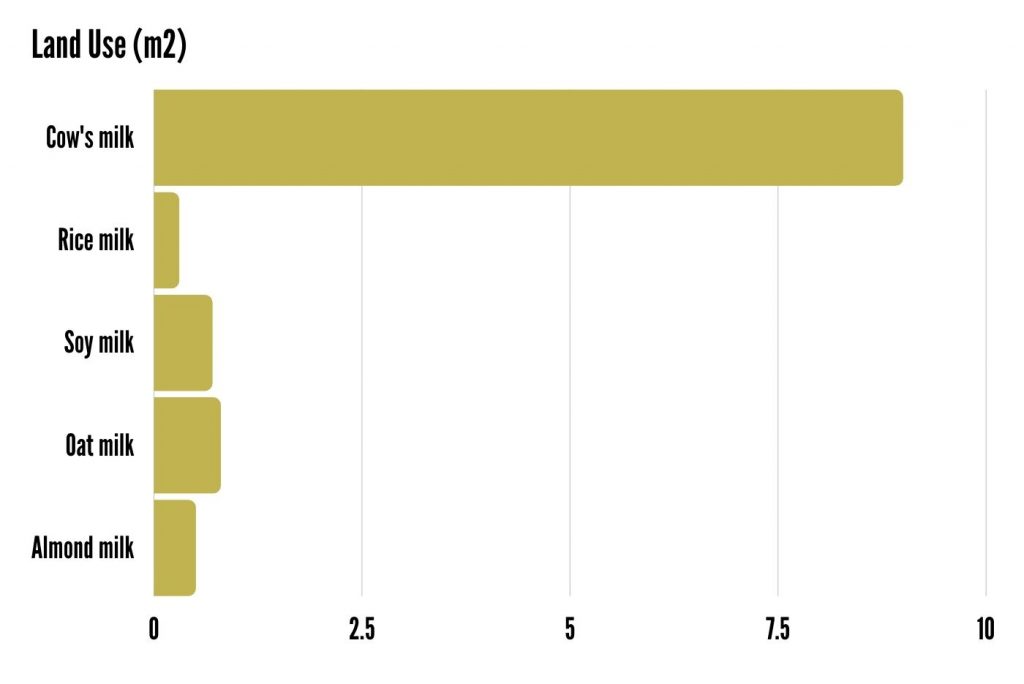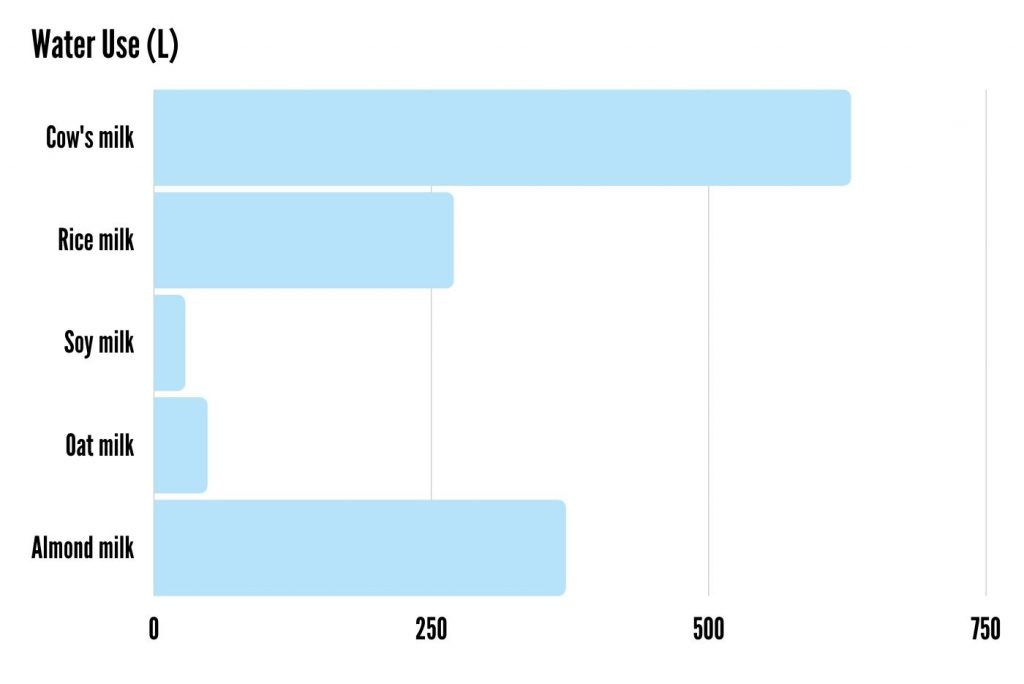
Look beyond dairy milk for your breakfast
By Luis Armando Sanchez Diaz, January 17 2021—
Last year brought many changes to people’s lives. And although change is often difficult — particularly when it relates to one’s lifestyle — it can contribute in a very positive way when we do things for the better.
An example of a positive change can be changing our diet, which can consist of adding new products to your meals or the way you prepare them. This can be based on your physician’s advice, an idea you got from social media or a friend’s suggestion. Also, it can be based on a person’s willingness to reduce their carbon footprint and help maintain a responsible relationship with the environment.
In recent years, social media platforms have seen an uptick in the amount of posts by users under several healthy-lifestyle hashtags — many of which are photos of vegan or vegetarian meals. They either show perfectly assembled bowls with mixed fruits, yogurt/smoothie mixes or shakes made of different milks rather than simply dairy milk.
Here is the list of some milks that are available in the supermarket, or depending on where you live, you can prepare by yourself as well:
Rice milk: As it’s given name, this type of milk is made with rice which gets boiled and then mixed with rice starch and syrup. It is ideal for lactose intolerant people and those who battle high blood pressure given that it’s cholesterol free. Although it’s worth noting that it doesn’t contain many nutrients. It also can last from between 3-5 days if refrigerated.
Almond milk: This type of milk is tree-based and made with almonds. It is rich in nutrients like vitamin E and D as well as calcium. It is also highly popular among consumers as being an alternative to dairy milk. It goes without saying but if you’re allergic to almonds, avoid this.
Soy milk: Soy milk is a plant-based milk made of soybeans soaked in water. It contains many nutrients which makes it the nearest equivalent to cow milk.
Coconut milk: This milk is produced by using flesh from mature brown coconuts and mixed with water. It contains numerous nutrients for the body like iron and calcium, as well as vitamins C and E. This type of milk doesn’t contain any lactose.
Oat milk: Derived from mixing of oats with water and then extracting the liquid that is produced by the blend, oat milk is rich in vitamins and fiber. It’s also an excellent choice for anyone that is lactose intolerant.
Of these types of milks there are some that generate a higher ecological footprint which can lead many to think twice before choosing among the different varieties of milks. The following chart assembled by Daniela Haake with the data collected by Poore and Nemecek for a study at Oxford University in 2018 about greenhouse emissions and water shows the ecological impact of some of the aforementioned milks.



Haake points out that almond milk “requires the most water to produce of any vegan kinds of milks,” but emits the lowest amount of gas to the atmosphere. Almonds have “the additional advantage that their leaves lock up a lot of CO2.”
She also mentions that soy milk and oat milk are the clear winners when it comes to the usage of less amounts of water in comparison to almond milk, which the trees where almonds grow need up to five-litters “to grow one single almond,” she states.
By comparing the nutrient value that certain types of milk have and the environmental impact their production has, you can make a solid conclusion as to which type works best for you. The only information that might tilt your decision is the price which varies from place to place. Some of these milks are much pricier than others.
